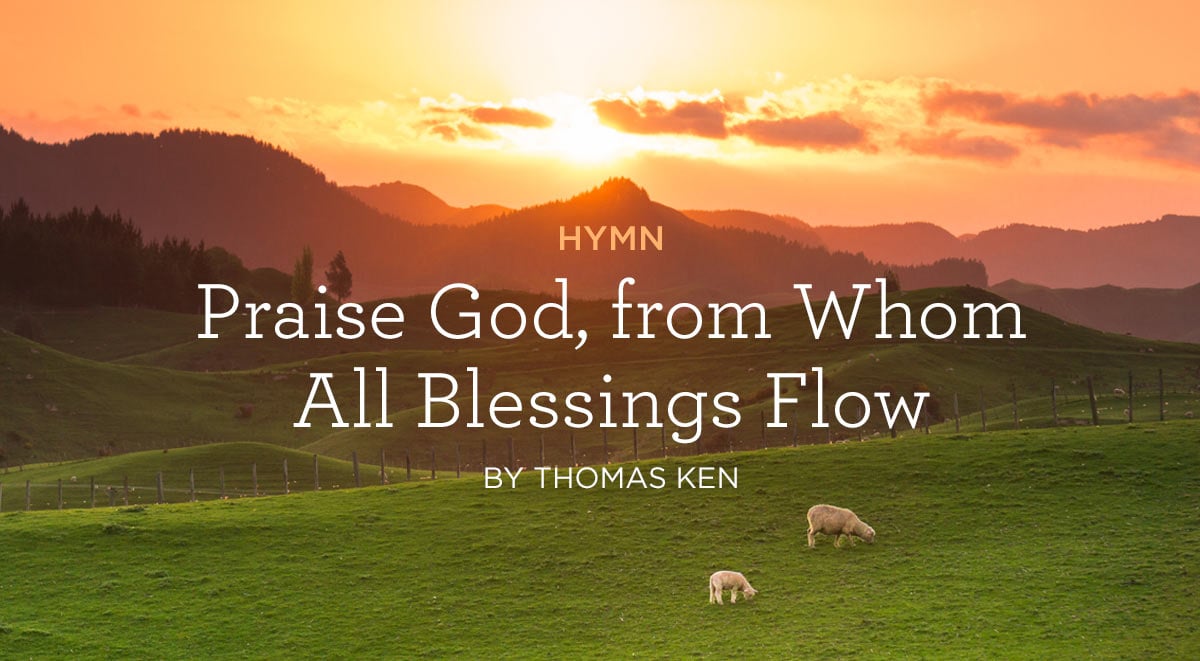

It is sometimes called SAVOY, or GENEVAN 134 after its original text in the Genevan Psalter. OLD HUNDREDTH is by far the most common tune to which this text is sung. It is now well-known on its own as a doxology, or as a concluding stanza for other hymns, such as “All Creatures of Our God and King,” or “All People That on Earth Do Dwell.” Tune: “Praise God, From Whom All Blessings Flow” was the text of the final, doxological stanza for all three of them.
#PRAISE GOD FROM WHOM ALL BLESSINGS FLOW MANUAL#
These hymns were published by Ken in a pamphlet in 1694, and were included in the Manual in its 1695 edition. In about 1674, Bishop Thomas Ken wrote three hymns for morning, evening, and midnight as an addition to his A Manual of Prayers for the Use of the Scholars of Winchester College.

A., late fellow of Lincoln College, Oxford with.

A Collection of Hymns for the Use of the Methodist Episcopal Church: principally from the collection of Rev.A Collection of Hymns for the use of the African Methodist Episcopal Zion Church in America #1130.A Collection of Hymns for Public, Social, and Domestic Worship #1054.A Choice Collection of Hymns, and Spiritual Songs, designed for the devotions of Israel, in prayer, conference, and camp-meetings.(2nd ed.) #148.


 0 kommentar(er)
0 kommentar(er)
